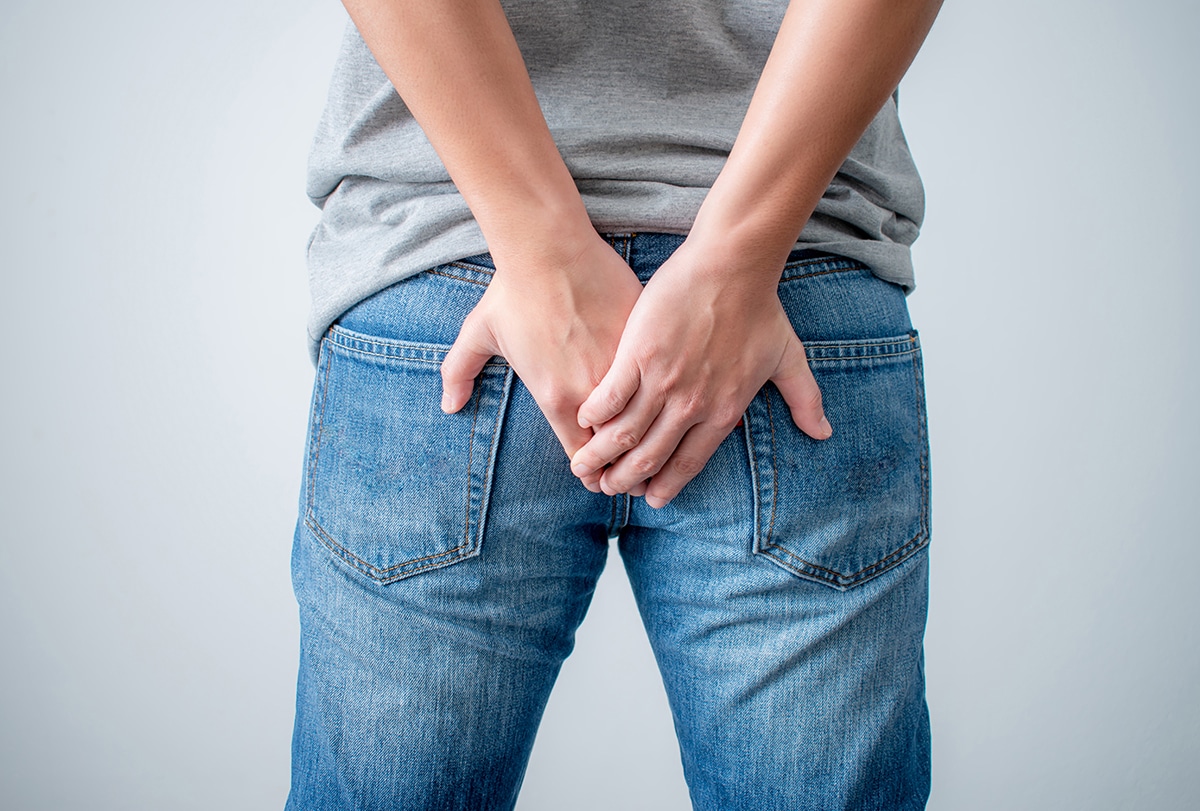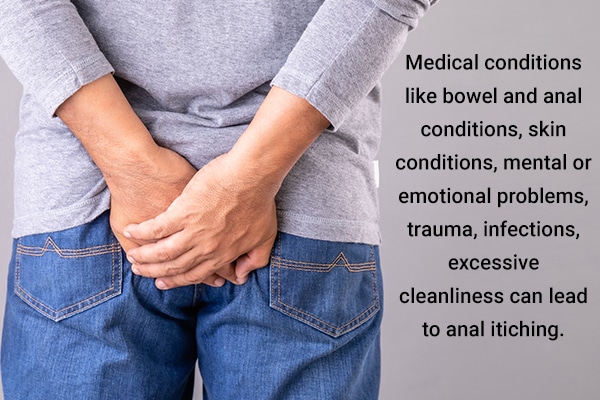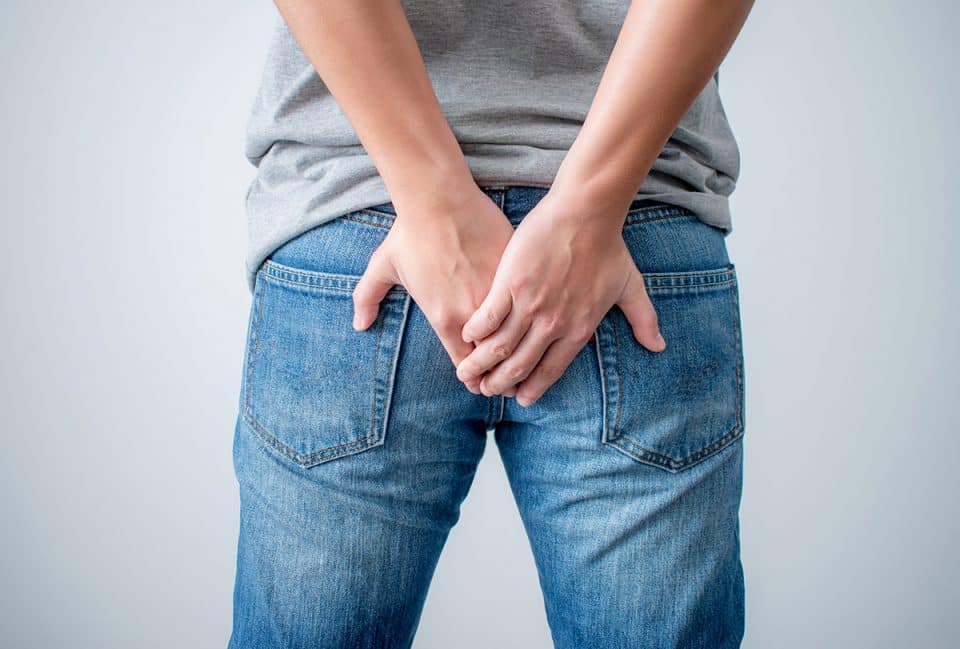“Pruritus ani,” or anal itching, is a chronic condition that causes intense itching and irritation in and around the anal area. (1)

It is more commonly seen in middle-aged men, though it can affect anyone. It usually gets more severe at night and can cause sleeplessness and irritability in some people. (2)
Causes of Anal Itching
Anal itching can be caused by a number of different factors. It may be a symptom of an illness or can sometimes occur due to reasons such as:
Some medical conditions that can cause anal itching are:

- Bowel and anal conditions – There are some diseases affecting the anal area such as rectal and anal cancers, hemorrhoids, and irritable bowel syndrome.
- Skin conditions – Some allergies can cause itching in the anal area. (5)
- Mental or emotional problems – Though stress does not cause itching, it may aggravate it.
- Trauma – Placing any object inside your butthole may cause pain and irritation. (6)
- Infections – Some bacterial, viral, or fungal infections can affect the area around your butthole and cause irritation. Some of these infections include yeast infections and sexually transmitted infections (STIs) such as herpes, gonorrhea, and HPV.
- Excessive cleanliness – Excessive cleaning and rubbing, using rough toilet paper, etc., can damage the delicate skin around your anus.
- Moisture – Exposure to vaginal discharge, sweat, etc., for extended periods can cause anal itching and irritation.
Some other conditions that can indirectly cause anal itching are:
- Uncontrolled blood sugar due to diabetes
- Leukemia
- Kidney disease
- Liver disease
- Anemia
- Pinworms
Symptoms of Anal Itching
Here are some common symptoms of pruritus ani:
- Itching in and around the butthole
- Redness and irritation in the area
- Burning sensation (7)
Treatment for Anal Itching
Here are some common treatments prescribed by doctors for anal itching.
1. Ointments and creams
Your doctor may ask you to apply some creams on the itchy and irritated area:
- Hydrocortisone creams are steroid creams that can help soothe skin irritation. They are applied to the affected area using a finger or applicator. Steroid creams should only be used as long as advised by the doctor.
- Barrier creams (zinc oxide) are available over the counter and also help provide relief from itching. (8)
- Lidocaine® ointment or jelly is a pain-relief prescription cream that can be used to treat anal irritation by numbing the area for a short while. (9)
- Capsaicin: Capsaicin is another remedy for irritation that is available over the counter.
2. Medication
Your doctor may prescribe stronger treatments such as
- Antihistamines – To provide relief from itching and help you sleep at night
- Antidepressants
- Methylene blue shots – Given in the anus to relieve itching in extreme cases (10)
3. Surgery
Certain conditions such as cancers, anal fissures, and hemorrhoids may require surgery.
Diagnosing Anal Itching
Your doctor may ask you about your medical history, such as the duration of itching, bowel habits, and any medications you are on, among others. They may also perform a physical examination of the area.
Since anal itching can be a symptom of other conditions, they may ask you to undergo some diagnostic tests such as:
- Anoscopy: Anoscopy is performed by inserting a tiny scope into your anus and examining it.
- Lab tests: Your doctor may ask you to undergo screening tests that include sending a small sample of your stool for lab testing. (11)
- Patch test: Patch tests are performed by placing a small patch on the skin for a specific time. The patch is then removed and sent for laboratory testing.
- Skin biopsy: Skin biopsies help diagnose skin conditions that cause anal itching. (11)
Complications of an Itchy Anus
Some complications associated with anal itching include:
- Lichen simplex, a skin condition that can cause extreme itching and irritation
- Secondary infections
- Damage in the skin near your anus and pain after taking certain shots to treat the itch
- Pain while passing stool
When to See a Doctor
Consult a doctor as early as possible if:
- You notice blood in your poop or blood from the anal area.
- Your itch is persistent and interferes with your daily routine and sleep.
- Your bowel movements are painful.
- The area around your butthole appears red or bruised.
What you may ask your doctor
- Is this condition serious?
- How can I prevent it from returning?
What your doctor may ask you
- How long have you had this condition?
- Do any of your parents or siblings have a history of bowel or rectal cancers?
- Do you have hemorrhoids?
- How would you grade your pain?
- What medications are you on?
- Do you have any other medical conditions?
Final Word
Pruritus ani can be an embarrassing condition for many but is certainly nothing to be ashamed of. It affects many people and can be caused by several factors.
If you or anyone you know suffers from this condition, seek medical attention as soon as possible to diagnose the problem and receive proper intervention.
Continue Reading
9 Home Remedies for Anal Itching

